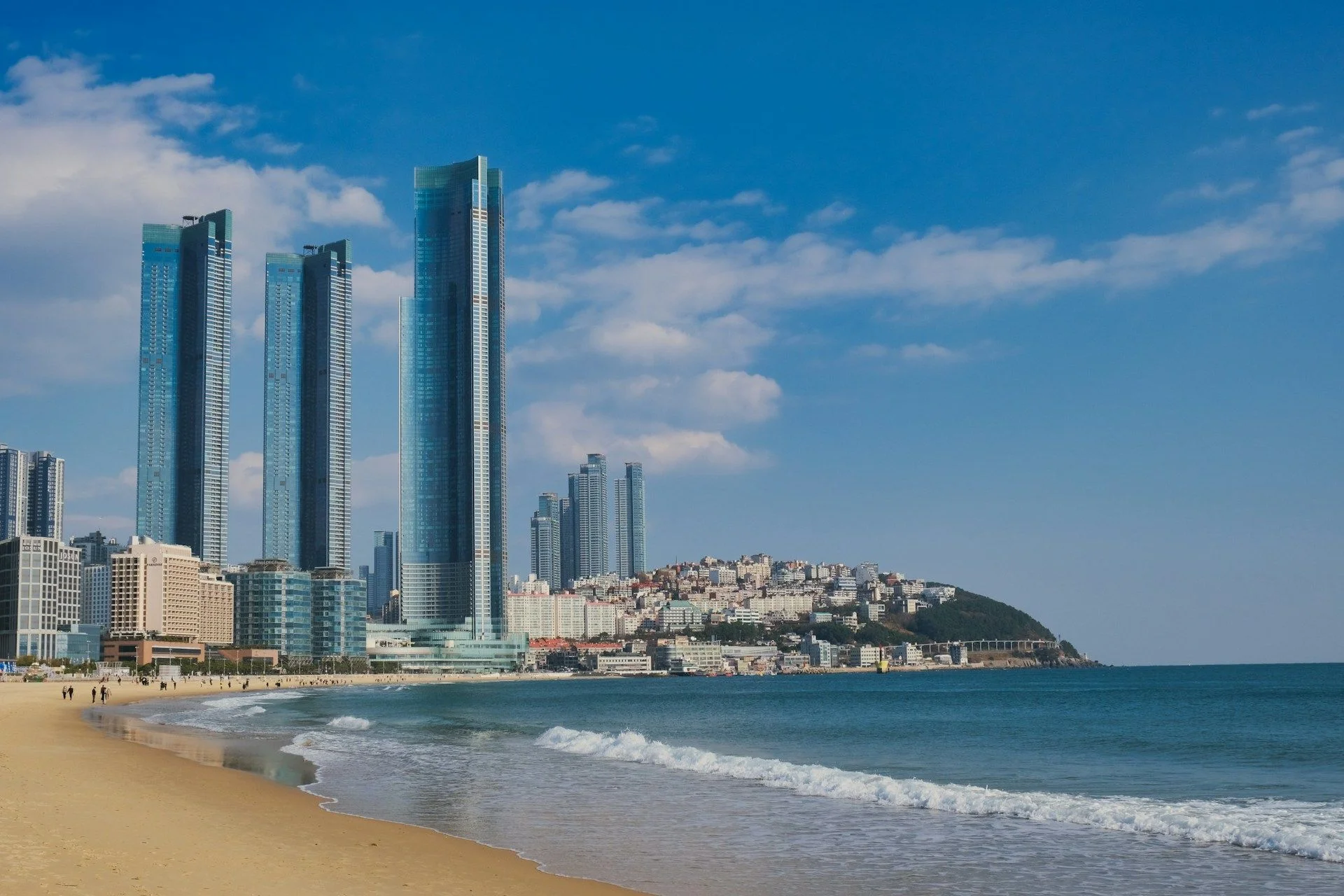Busan Investment Property ListingsUrban infrastructurewith a coastal character

Best offers
in Busan
Benefits of investment in
South Korea real estate
High-tech urban living with property value stability
Major cities like Seoul offer strong infrastructure, public transport, and value retention in real estate.
Fast resale and rental demand in key areas
Districts near universities, business centers, and transit hubs show constant demand from renters and buyers.
Condos with security, amenities, and minimal upkeep
Modern apartments often include doorman service, gyms, and automated systems — ideal for remote owners.
High-tech urban living with property value stability
Major cities like Seoul offer strong infrastructure, public transport, and value retention in real estate.
Fast resale and rental demand in key areas
Districts near universities, business centers, and transit hubs show constant demand from renters and buyers.
Condos with security, amenities, and minimal upkeep
Modern apartments often include doorman service, gyms, and automated systems — ideal for remote owners.

Useful articles
and recommendations from experts
Real Estate in Busan, South Korea
Why Invest in Busan
Busan, South Korea’s second-largest city, is a coastal metropolis renowned for its international port, modern infrastructure, and thriving tourism sector. Known for Haeundae Beach, the bustling Jagalchi Market, and scenic coastal roads, Busan blends urban energy with natural beauty. As a result, it attracts both domestic and foreign real estate investors looking for growth outside Seoul. Property in Busan offers relatively lower entry costs, high demand in key districts, and long-term appreciation in both residential and commercial sectors.
Property Types in Busan
Busan’s real estate landscape is diverse, including:
- High-rise condominiums — Common in Haeundae, Marine City, and Centum City, often offering ocean views and luxury amenities.
- Low-rise villas and duplex homes — Found in more traditional neighborhoods like Yeonsan-dong and Dongnae.
- Officetels (office + hotel hybrids) — Compact units used for residential and business purposes, especially near transportation hubs.
- Commercial properties — Located in Seomyeon and Nampo-dong, Busan’s retail and financial centers.
- Land plots — Rare in city centers but occasionally available in fringe redevelopment zones such as Gijang-gun.
Foreign Ownership Regulations
South Korea allows foreigners to purchase real estate, including in Busan, with very few restrictions:
- Foreign individuals and companies may purchase residential, commercial, or industrial property.
- Ownership must be registered within 60 days with the relevant local government office.
- Freehold title is available for land and buildings, and there are no ownership caps.
- Jeonse (key money leases) and Wolse (monthly rent) are available to non-resident landlords.
Property Prices and Trends
Busan offers more affordable real estate than Seoul but is increasingly in demand:
- Luxury ocean-view condo in Haeundae: KRW 900 million – 2 billion (USD 690,000 – 1.5 million)
- Officetel in Centum City: KRW 200 – 500 million (USD 150,000 – 380,000)
- Villa in Dongnae: KRW 600 – 1.2 billion (USD 460,000 – 920,000)
- Commercial shop in Nampo-dong: KRW 800 million – 2.5 billion (USD 610,000 – 1.9 million)
Rental Yields and Market Demand
Busan’s rental market serves multiple segments:
- Expats and business travelers — Concentrated in Marine City, Centum City, and Haeundae.
- Students and young professionals — Found near Busan National University and in Seomyeon.
- Tourists and short-term renters — High demand for Airbnb and vacation rentals near the beach.
- Jeonse — Deposit-only rental contracts with deposits ranging from 50% to 80% of property value.
- Wolse — Monthly rent with refundable security deposit (commonly KRW 5–10 million).
- Officetels in Busanjin-gu: 4.5% – 6%
- Ocean-view apartments in Haeundae: 3% – 4%
- Retail units in Seomyeon: 5% – 7%
Best Districts to Invest
Top-performing neighborhoods in Busan include:
- Haeundae-gu — Beachfront condos, luxury living, and high tourist traffic.
- Suyeong-gu (Marine City) — High-rise towers with harbor and ocean views.
- Centum City — Tech, media, and business hub with strong commercial demand.
- Seomyeon — Busan’s downtown core, ideal for retail, officetels, and nightlife-oriented properties.
- Dongnae-gu — Established residential area with schools, hospitals, and traditional housing.
How to Buy Property in Busan
The standard process includes:
- Selecting a licensed agent (Budongsan) to identify property and negotiate terms.
- Signing a sale contract with a 10% deposit and stating full property and buyer details.
- Reporting the transaction to the Ministry of Land or local office within 60 days (required for foreign buyers).
- Registering the title and paying acquisition and registration taxes.
- Completing payment via a Korean bank in KRW, after opening an onshore account.
Taxes and Ongoing Costs
Ownership in Busan includes the following obligations:
- Acquisition tax: 1.1% – 3.5% of the property value.
- Property tax: 0.15% – 3.2% annually depending on asset class and value.
- Capital gains tax: 6% – 45% based on profit and holding period.
- Rental income tax: 14% – 42%, depending on total declared rental income.
- HOA fees: For condos, monthly fees range from KRW 80,000 – 200,000 depending on amenities.
Who Should Invest in Busan
Busan is ideal for:
- Long-term investors seeking stable appreciation in a tier-one Korean city.
- Landlords looking for short-term rental opportunities or monthly tenants in a tourism-driven economy.
- Portfolio diversifiers who want exposure outside Seoul in a coastal, business-friendly environment.
- Foreign retirees or second-home buyers seeking oceanfront living with modern infrastructure.
Conclusion
Busan stands out as a high-potential real estate market in South Korea, offering a balance between affordability, rental demand, and lifestyle appeal. From beachfront condos to commercial officetels, the city supports various investment strategies. With legal transparency, well-established infrastructure, and continued urban development, Busan is a compelling choice for local and international property investors alike.
